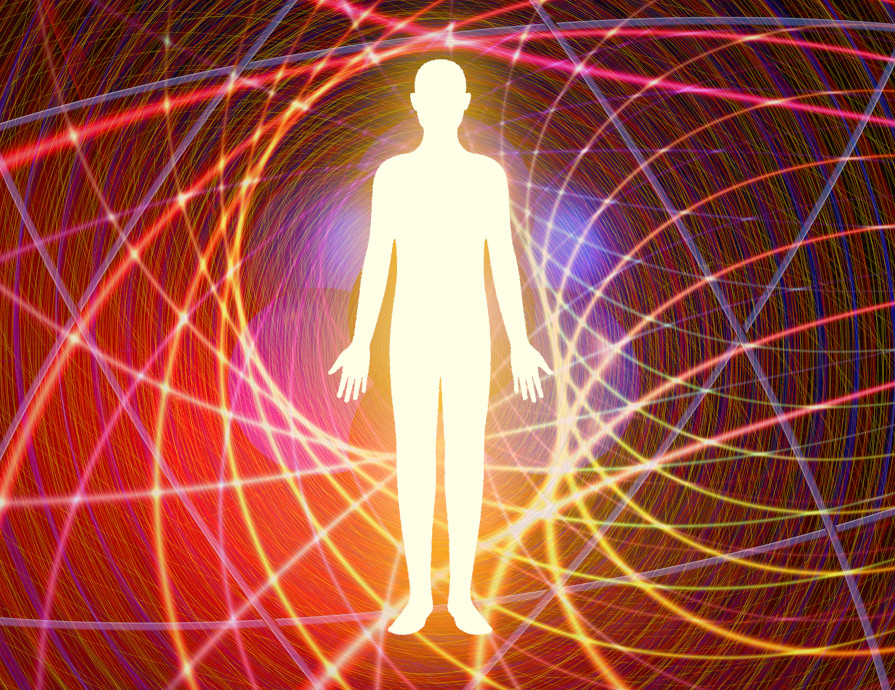
This post is the first chapter of my magick course for beginners, Magick Made Simple. It is available as an ebook from my Ko-Fi store. You can find links to the book here.
We live in a fractal universe. Our inner world is a reflection of the external. Take, for example, golden ratios such as Phi or the Fibonacci sequence. These emerge in a multitude of phenomena, including conifer plants, flowers, shells, the human body, optics, voltage, cyclones, galaxies, and even economics. Patterns repeat on both the macrocosmic and microcosmic levels, suggesting that there is indeed some kind of intelligent structure to creation. Consider, as another example, the striking similarity in appearance between the birth of a cell and the death of a star. This is just one way to view the hermetic axiom, ‘As above so below, as below so above’.
However, such fractal patterns are not restricted to physical phenomena. They also occur on more subtle levels. Let’s consider our everyday lives. If we have a stable and rewarding job, a happy home, and a positive circle of friends, we thrive in contentment. If, on the other hand, our boss is an arsehole, our friends are thieves, and our lives are generally unrewarding, it affects us negatively in the form of stress, emotional dysregulation, and even physical ailments. This is to say that our internal world is a reflection of our external world.
Many people probably aren’t aware of these dynamics in their own lives. If we take someone from the latter group (the negative Nancy), I would hazard a guess that they are triggered by insignificant things, susceptible to road rage, live an unhealthy lifestyle, and consume a lot of television. If you ask them why they’re unhappy, they probably have no idea, and simply accept their lot unquestioningly. If they do have a semblance of a clue, they likely feel powerless to change their circumstances.
I merely speculate here, but people in the first group (positive Patsy) probably do engage in some kind of self-reflection; a gratitude for life, and regulate their emotions more effectively. Whether they’re conscious of this or are simply lucky to have been blessed with an amazing life is difficult to say.
Where am I going with this then?
The hermetic axiom in the opening paragraph, ‘As above, so below. So below, as above’ implies a bi-directional dynamic. The effect of someone’s external reality upon their inner reality is in turn perpetuated by the very emotional state that it puts them in. A feedback loop is taking place, for better or worse. Interestingly, even modern psychology shows evidence for this two-way dynamic in the phenomenon of self-fulfilling prophecies.
Consider an everyday scenario. You miss your alarm by half an hour. As you frantically get out of bed in a state of panic, you stub your toe. You grumble to yourself as you make a cup of coffee, which you spill on yourself because you’re distracted by the mild throbbing pain that’s spread to your foot. As you dwell on the fact that your day is off to a less-than-ideal start, you drop your coffee cup, which shatters into a hundred pieces. You manage to get ready for work faster than ever, yet you still leave ten minutes later than usual which, thanks to peak hour traffic, makes you twenty minutes late for work. Your boss yells at you for your tardiness and you spend the rest of the day in a foul mood. Your client picks up on your negative energy and decides not to go ahead with the contract that you’ve spent all morning frantically preparing. All because you overslept by half an hour.
This illustrates, albeit a tad crudely, how our emotional state, and subsequently our implicit beliefs and expectations, have a very real effect on the quality of our life. It also illustrates the mechanism by which we can utilise magick to affect change in a more positive direction.
Vibration
Quantum science is rapidly making sense of the fact that even the so-called vacuum of space is not empty at all. Between any two objects, there is a mesh, or indeed a ‘matrix’ through which information travels. This is known as the quantum field or, in Vedic traditions, Akasha.
What quantum physicists (at least those in mainstream science) probably won’t admit is that humans can perceive it. Have you ever thought about someone just before they contacted you? Have you ever had an indescribable gut feeling, either good or bad, about a significant event just before it happened? Have you ever felt a peculiar ‘vibe’ from someone that either attracted or repelled you? If you ask around, almost everyone has experienced such things. But because science hasn’t admitted it or cannot quantify it, most people will dismiss it as mere coincidence.
Whether everyday folks believe it or not, subtle vibrations across the quantum field serve as packets of data that we receive via our subconscious. Our innate ability to decode and make meaning of this data is the meat and potatoes of our ‘intuition’. The chaotic noise of everyday life tends to drown this out, which is why most people only become aware of those little gut feelings after the fact. However, intuition can and should be cultivated, as I’ll discuss in more detail later in the book.
Our subconscious mind communicates these vibrational packets of information to our conscious mind by way of emotions. In addition to the external noise of daily life, a reason those gut feelings are difficult to put a finger on is that the emotions they invoke are quite subtle; we simply do not have words in our mundane vocabulary to label them.
Another thing that physicists probably won’t admit any time soon is that humans can transmit across the quantum field as well as receive. What most people are completely unaware of is that everyone is transmitting vibrations across the field all the time. Every emotion, every thought, every belief, and every action is a vibration. Just like pressing a tuning fork against a timber table, our external reality resonates at the same frequency as our internal world. If our emotions and thought patterns are a scattered mess of negativity and resentment, that’s what we’ll get. Conversely, if they’re peaceful, positive, and aligned with the good stuff, so will it be reflected in our experience. In the words of Aleister Crowley:
“Why should you study and practice Magick? Because you can’t help doing it, and you had better do it well than badly.”
– Aleister Crowley, Magick Without Tears.
With practice and discipline, we can intentionally and consciously affect positive change in our inner world, pushing information out across the subtle web that permeates all of reality, thus bringing about change in our lives. This is the fundamental utility of magick. Rather than be at the whim of what seems like mere chance, magick offers the tools to systematically return control of an individual’s life to his or her own hands – exactly where it belongs.
